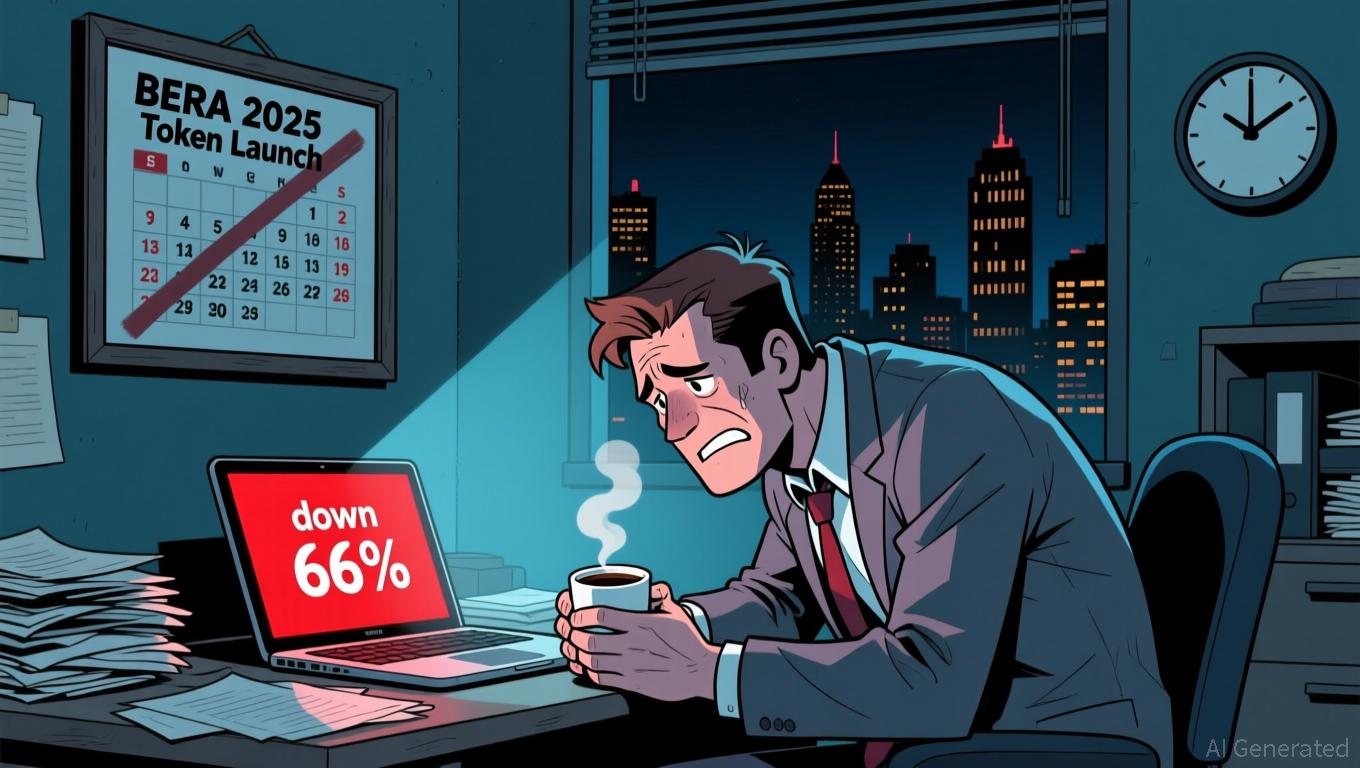Why do most Treasury DAOs engage in discounted trades?
DAT Mode: Bridging TradFi or Navigating the Crypto Market's "Death Spiral"
Original Author: @Matt_Hougan
Translation: Peggy, BlockBeats
Editor's Note: The Digital Asset Treasury (DAT) model was once seen as a "moat" in the crypto market, but as Bitcoin fell back to the $80,000 range, the flywheel effect stalled, and the market entered a period of adjustment.
Recently, there has been frequent controversy in the market regarding the DAT model. Supporters believe that DAT is a bridge connecting crypto and TradFi, which can drive ecosystem development. Leading companies like MSTR still maintain a near 1.03 mNAV, proving that quality projects have resilience and are poised to achieve a premium through strategies such as debt, lending, derivatives, and more.
On the other hand, critics warn that DAT is inherently leveraged speculation, prone to a "death spiral" in bear markets. The VC model exacerbates selling pressure, and meme coin DATs pose even more concentrated risk. Regulatory uncertainty (MSCI delisting, Hong Kong Exchange rejecting transition plans) further amplifies discounts, deepening market divergence, with the average decline of tail-end DATs exceeding 70%.
On November 21, crypto analyst Taiki and Multicoin Capital co-founder Kyle Samani engaged in a direct confrontation on the X platform regarding "Whether DAT will sell spot assets to repurchase shares."
Taiki Maeda's highly interactive post pointed out directly: "DAT turns decentralized pure assets into a VC-backed scam, bringing selling pressure." This viewpoint reinforces the narratives of the "death spiral" and "centralization risk," especially with a greater impact on meme coin DATs.
Kyle emphasized that there is little evidence to suggest that DAT will sell spot assets to repurchase shares, believing that this behavior is not a systemic issue but rather isolated cases or misunderstandings, implying that DAT focuses more on long-term value growth. Taiki, in response, argued that when mNAV falls below 1, DAT is highly likely to be forced to sell assets to repurchase shares, leading to a "death spiral." He cited the current mNAV<1 for $FWDI as an example to question Kyle, pointing out precedents where treasury assets were sold to repurchase shares in bear markets (such as ETHZILLA and small DATs).
This sharp debate, combined with the community's acquiescence to the idea that DAT is "meaningless," further magnified the market's concern about the structural risks of DAT.
This article, based on outlining the core valuation logic of DAT (mNAV, discount, and premium factors), combined with the latest debates, discusses the sustainability of the DAT model, regulatory challenges, and the trend of polarization, helping you see through the controversy which companies may trade at a premium and which are destined to trade at a discount.
The following is the original text:
I have seen a lot of terrible analysis about DAT (Digital Asset Treasury companies). In particular, many people's views on whether they should trade above, below, or at their held asset value (the so-called "mNAV") are very unreliable.
Here is my take on this.
When evaluating a DAT, the first question to ask is: How much would this company be worth if it had a fixed lifecycle?
If you consider a very short time frame, the value of this approach is obvious. For example: Suppose you have a Bitcoin DAT that announces it will shut down this afternoon and distribute the Bitcoin to investors. Then its trading price will be exactly equal to the value of its Bitcoin (i.e., mNAV is 1.0).
Now extend the time frame. What if it announces it will close in one year? Then you have to consider all the reasons why a DAT's trading price may be above or below its Bitcoin value. Let's review these factors.
Three Reasons for Discounted Trading
The three main reasons why DATs trade at a discount are: illiquidity, operating costs, and risk.
1. Illiquidity: You wouldn't want to pay full price today for Bitcoin you'll receive a year later. But you would be willing to pay a discounted price. Would you ask for a 5% discount? Or 10%? If it were me, I would definitely go for 10%. This would decrease the value of our DAT.
2. Operating Costs: Every dollar of operating expenses or executive compensation ultimately comes out of your pocket. Suppose our 12-month DAT has a $100 per share Bitcoin holding but pays executives $10 per share annually. Then you would certainly demand a 10% discount to Net Asset Value (NAV).
3. Risk: Companies can always make mistakes in various aspects. You also need to factor this risk into the price.
Four Ways of Premium Trading
Now let's see why a DAT might trade at a premium. In the U.S., there is only one reason: if it can increase the amount of cryptocurrency per share.
I have seen four main ways DATs attempt to do this.
1. Debt Issuance: If you issue debt in dollars and buy cryptocurrency, and the cryptocurrency rises against the dollar, you can repay the debt and increase the amount of cryptocurrency per share. This is typically a strategy for increasing its per BTC share. (If Bitcoin prices fall, it's the opposite.)
2. Lend Out Cryptocurrency: If you lend out cryptocurrency and receive interest payments, you can increase the amount of cryptocurrency per share.
3. Use Derivatives: If you hold cryptocurrency and engage in operations such as selling covered call options, you can earn returns and accumulate more assets this way. Of course, this also means you may be giving up some of the upside potential.
4. Acquire Cryptocurrency at a Discount: A DAT may acquire cryptocurrency at a discount through various means, such as:
Buying locked assets from a foundation to sell specific assets without disrupting the market;
Acquiring another DAT that is trading at a discount;
Repurchasing its own stock if it is trading at a discount;
Acquiring a cash-flow-generating business and using that cash flow to purchase cryptocurrency.
One challenge a DAT faces is that the reasons for trading at a discount are mostly known, while the reasons for trading at a premium are mostly unknown.
Therefore, a DAT faces a high threshold: most will trade at a discount, with only a few exceptional companies trading at a premium.
Back to our example: If you have a Bitcoin DAT that will settle 12 months from now, you can:
(1) Calculate its operating costs;
(2) Add a risk discount;
(3) Offset these discounts with your expected ability to increase per-share Bitcoin.
That's its fair value!
You might be thinking: Well, Matt, DATs do not have a fixed lifecycle. They will go on indefinitely!
Indeed, this makes the issue more complex. But in reality, this means everything will be magnified. Costs and risks will grow exponentially over time, so close attention is required. Similarly, DATs that can continually increase per-share cryptocurrency may be very valuable.
As I reviewed ways for DATs to increase per-share cryptocurrency, I noticed a significant characteristic: each method benefits from scale.
Larger-scale DATs will find it easier to issue debt than smaller-scale DATs; they have more cryptocurrency available for lending; they can access more liquid options markets; and they will have better opportunities in mergers and other discount transactions.
Over the past six months, the price of DAT has moved almost in sync. However, in the future, I believe we will see more differentiation. Some companies will perform well and trade at a premium, while more will underperform and trade at a discount. This model is a framework to help you determine which companies fall into which category.
Disclaimer: The content of this article solely reflects the author's opinion and does not represent the platform in any capacity. This article is not intended to serve as a reference for making investment decisions.
You may also like
Animoca's Relocation to Abu Dhabi Connects Conventional Finance with Web3
- Animoca Brands secures Abu Dhabi FSRA in-principle approval to operate as a regulated fund manager, advancing its Middle East regulatory expansion. - The approval enables managing collective investment funds in ADGM, building on prior Dubai VARA crypto brokerage license to solidify UAE presence. - The firm plans institutional-grade Web3 services, including a DL Holdings partnership for an XRP Ledger-based fund and RWA tokenization via NUVA and ANPA. - Animoca's strategy bridges traditional finance and We

SEC's Decision on FUSE Sets the Stage for Regulatory Progress in DePIN Development
- SEC grants no-action letter to Fuse Crypto's FUSE token, exempting it from securities classification under specific conditions. - Decision marks regulatory shift toward utility-driven DePIN projects, aligning with new leadership's nuanced crypto approach. - FUSE's energy-grid utility model incentivizes sustainability, distinguishing it from investment contracts under Howey test criteria. - Ruling provides DePIN sector clarity amid stalled Clarity Act, though critics note it applies narrowly to Fuse's spe

Crypto Faces Fresh Risk Management: Brevan Howard’s Berachain Refund Provision Ignites Discussion
- Brevan Howard's $25M Berachain investment includes a 1-year refund clause, shielding its fund from principal risk via Nova Digital. - Legal experts call the performance-linked refund "highly unusual," as Berachain's BERA token has dropped 66% to $1.01 since its $3 TGE price. - While Berachain claims equal terms for Series B investors, anonymous participants revealed they were unaware of the refund mechanism when investing. - The $1.5B valuation deal highlights crypto investing tensions, with refund claus

Crypto Kingpin Biopic Speculation: Debate Surpasses Official Verification
- Unverified rumors suggest Jackie Chan could star in Netflix's "Crypto Kingpin," a biopic about Binance founder Changpeng Zhao, fueled by an anonymous X account's claim. - Zhao, who built Binance into the world's largest crypto exchange, faces scrutiny over 2023 money-laundering charges and a controversial 2025 Trump pardon. - The speculation gained traction after Chan's upcoming crypto-themed film "The Shadow's Edge" highlighted his interest in blockchain narratives. - Neither Netflix nor Chan's team has

